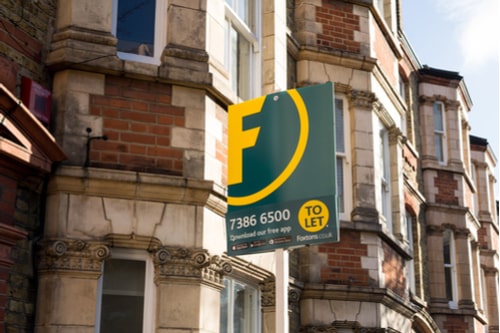When a let property lies empty, it’s important that the buildings’ insurer knows, even if it is just one flat within a busy building.
Your buildings’ insurance may be void if you have not advised them and, in the case of a flat, the other leaseholders may look to you for any insurance excess or rise in premiums that may result from what they deem as your negligence. Similarly, be sure to let your insurer know if any of the flats in your building are sub-let.
Usually there will be no problem for a void period of 30 or 60 days at a time. Deacon’s block of flats cover is 60 days depending on the insurer, although they may require that the flat is regularly visited and checked.
However, empty rentals usually mean no income which is probably the last thing you want as a landlord or buy-to-let investor. Here are a few tips on what can you do to avoid them:
Retain the tenants you’ve got: Keep in touch to make sure everything is going smoothly. If you’ve bought and sub-let flat, make time to keep in touch with the managing agents and residents’ management company too to ensure that all is well. A tense atmosphere may encourage tenants to move on.
Avoid the contract becoming periodic: This usually happens when a fixed term ends and the tenancy runs from month to month, with the tenants able to leave with just a month’s notice. It’s probably better for you to renew the tenancy agreement every time it expires.
Start marketing early: Landlords should start marketing the property at least six to eight weeks before the current tenants move out and get exposure on as many websites as possible – including Rightmove and sites such as Gumtree or OpenRent. Maybe write longer notice periods into your rental contract so you have plenty of time.
Get the price right: In a price-sensitive market where tenants have lots of choice, it is crucial to get the price right. Beware of over-gearing to the point where you cannot afford to compete on the local rental market.
Don’t lower the price – upgrade instead: Don’t chase the market downwards. It might better to spend on improvements rather than continually reduce the price. Or maybe offer extras like the TV licence or broadband.
Lengthen the tenancy: Can you increase the lengths of your tenancy agreements to reduce churn and void periods? Although be aware that your mortgage lender may restrict your room for manoeuvre here.
Make an effort as a leaseholder: If the property is a flat, the communal areas need to look similarly enticing. You may not live there yourself, but you have a vested interest in the good maintenance of the building. Maintaining good relations with managing agents and other leaseholders may help you to deal with any problems that arise quickly.
FP1012-2020
The opinions and views expressed in the above articles are those of the author only and are for guidance purposes only. The authors disclaim any liability for reliance upon those opinions and would encourage readers to rely upon more than one source before making a decision based on the information.
